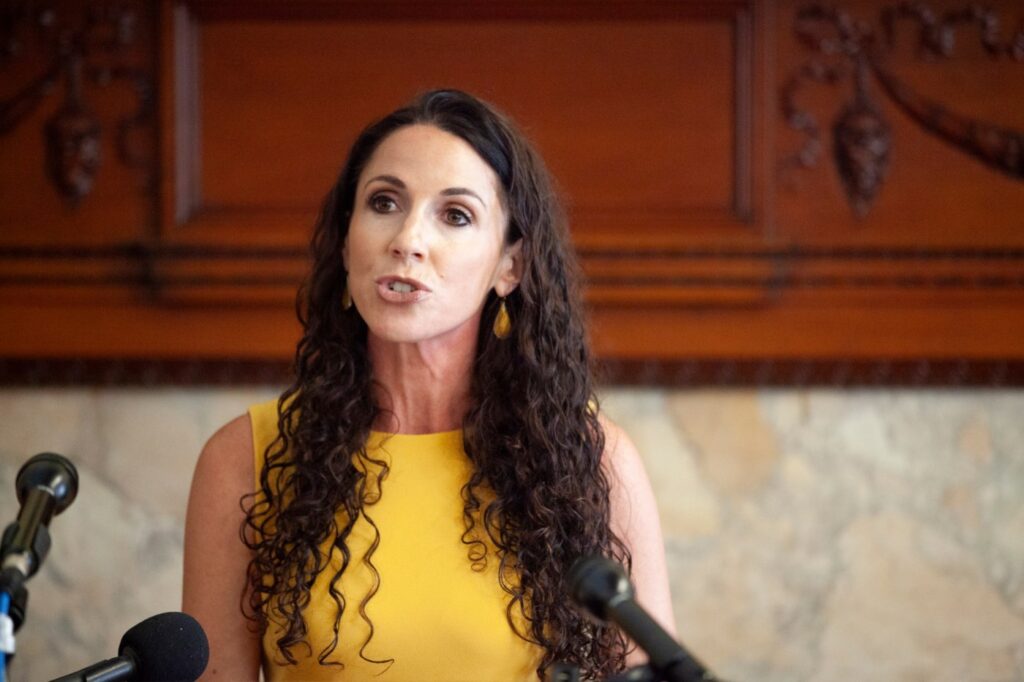
Residents of Massachusetts may find themselves frustrated after a recent report from the state auditor revealed significant inequities in the Mass Save energy efficiency program. The findings, released by Auditor Diana DiZoglio, highlight how lower-income communities contribute more to the program than they receive in benefits, raising questions about fairness and transparency in its funding mechanisms.
Established in 2008, the Mass Save program was designed to improve energy efficiency across the Commonwealth. It encourages both residents and businesses to upgrade their buildings through various services, rebates, and incentives. However, the program is funded by surcharges added to the utility bills of residential and commercial customers, leaving many feeling that they lack control over the financial burden they carry.
According to the report from the Division of Local Mandates (DLM), there are alarming disparities in how Mass Save distributes its incentives. The DLM assessed the program’s net benefits against socioeconomic factors such as income levels, population density, and rates of owner-occupied housing. This analysis revealed that some wealthier communities are reaping greater benefits than their contributions warrant, while lower-income municipalities are contributing disproportionately more.
Specifically, the report indicated that residents in 48 out of 175 municipalities with incomes below the state median contribute more per capita to Mass Save than the average. Those in Environmental Justice (EJ) municipalities and Gateway Cities, such as Fitchburg and Lowell, are particularly affected. Residents in communities with over 90% EJ populations contribute an average of 151% more than those in municipalities without EJ populations. Furthermore, residents in Gateway Cities contribute approximately 24% more than their counterparts in non-Gateway Cities, despite having significantly lower household incomes.
The report also pointed out that as population density and the proportion of renters increase, the benefits from Mass Save typically decrease. High-density urban areas and municipalities with a larger number of renters tend to contribute more to the program while receiving fewer benefits, perpetuating a cycle of inequity.
Transparency issues regarding utility bills were also highlighted in the audit. Many ratepayers find it challenging to understand their bills, as key fees are often labeled with technical terms or vague descriptions. This lack of clarity leaves consumers unsure of what they are paying for, complicating their ability to grasp the program’s impact on their finances.
In response to these findings, Auditor DiZoglio called for significant changes to the program. Recommendations include transferring the administration of Mass Save to an independent entity, enhancing legislative oversight, creating incentives to increase renter participation, and improving transparency around data accessibility.
“While Mass Save has a noble mission of promoting energy efficiency in the Commonwealth, its current programmatic structure undermines its mission by widening inequality,” stated Auditor DiZoglio. She emphasized that the program should be addressing the disparities it inadvertently exacerbates.
Local officials echoed these concerns. Fitchburg Mayor Sam Squailia expressed that the report illustrates the lack of equitable benefits. “We need a Mass Save program that is fair and transparent, stops shifting the energy savings burden onto working-class communities like ours, and lowers costs for our families,” he stated.
Similarly, Lowell City Councilor Erik Gitschier remarked, “Gateway Cities are being used as a checkbook for wealthier communities, which is not the goal of the Mass Save program.” Mayor D.J. Beauregard of Methuen reiterated the need for reform, emphasizing that Gateway Cities are contributing more to the program while receiving little in return.
Some changes have already begun to take shape. In February 2023, the Massachusetts Department of Public Utilities ordered the implementation of a three-year efficiency program created by the utilities managing Mass Save. Additionally, the DPU has reduced the program’s three-year budget by $500 million, which is expected to lessen the fees on customer bills.
Despite these adjustments, Mass Save remains a ratepayer-funded initiative. As such, the implementation of the auditor’s operational recommendations is crucial to ensuring that the program serves its intended purpose of promoting energy efficiency while fostering fairness and equity among all communities in Massachusetts.







